1. Alexandria Ocasio-Cortez
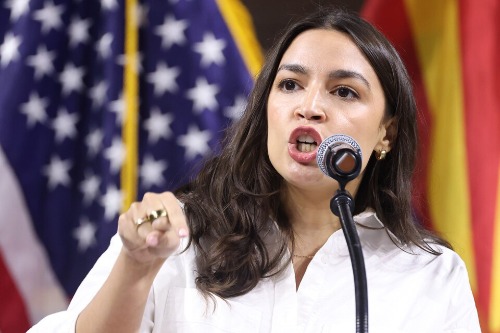
AOC’s knack for mixing policy talk with personal stories has given her speeches a podcast-like vibe. She often breaks down complex topics in a casual, relatable tone that feels more like a conversation than a formal address. Her Instagram Lives and Twitch streams show she’s comfortable with the informal, direct style of podcasting. This approach connects with younger audiences who prefer authenticity over polished political jargon.
She also launched her own podcast, Time to Walk, where she shares personal reflections and stories beyond politics. This project highlights how she’s blending the line between politician and content creator. It’s clear she’s tapping into the podcast medium to reach people in a more intimate way. It’s a new model for political communication, moving away from speeches to storytelling.
2. Barack Obama
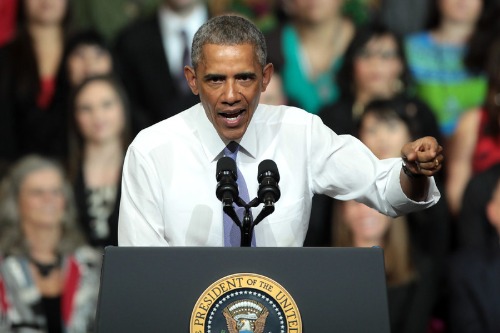
Since leaving office, Obama’s transformation into a polished storyteller is undeniable. His memoirs, interviews, and even his foray into producing podcasts through Higher Ground Productions show his embrace of the medium. His ability to engage listeners with thoughtful narratives and a calm, measured tone feels like a seasoned podcast host. He’s mastered making big ideas accessible and personal.
Obama’s podcast Renegades with Bruce Springsteen reveals a side of him that’s reflective and conversational rather than strictly political. The relaxed, candid exchanges have a vibe you’d expect from long-time friends chatting over coffee. It’s a far cry from the rigid speeches of his presidency. He’s redefining what it means to be a political figure in media.
3. Tulsi Gabbard
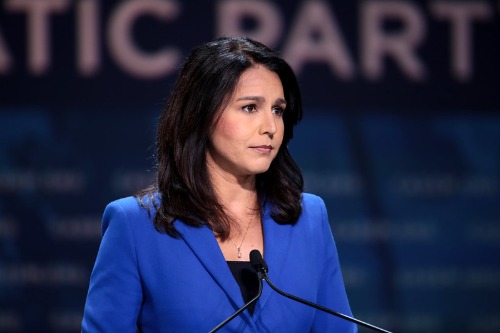
Tulsi Gabbard has become known for her independent voice and willingness to challenge mainstream narratives. Her podcasts and interviews often dive into detailed critiques of U.S. foreign policy, delivered in a tone that’s more analytical and conversational than confrontational. She uses the podcast platform to reach people directly, sidestepping traditional media filters. This gives her a distinct podcast host energy, sharing insights like a guest expert.
Her show Here’s Tulsi Gabbard features in-depth discussions on current events and personal beliefs, often including guests from various backgrounds. The casual, exploratory format reflects her desire to engage in nuanced dialogue. It’s less about winning arguments and more about exploring ideas together. This approach feels refreshingly like podcast culture rather than political debate.
4. Joe Biden

President Biden’s speeches sometimes carry a folksy storytelling style reminiscent of podcast hosts who try to keep things simple and relatable. His ability to share personal anecdotes about family and his working-class background adds warmth and humanity to his public persona. While he maintains presidential gravitas, there’s a noticeable shift toward conversational delivery in some of his addresses. This style resonates with listeners who prefer narrative over formality.
He’s also appeared on several podcasts post-election, engaging in candid discussions that feel more like chats than official statements. These appearances allow him to show a more relaxed, approachable side, almost like a host guiding a thoughtful conversation. It’s a smart way to connect beyond the usual political stage. This blend of politician and conversationalist is becoming increasingly common.
5. Kamala Harris

Vice President Harris often adopts a conversational tone in her speeches and public appearances, blending storytelling with policy details. Her background as a prosecutor and senator gave her a sharp edge, but now she’s adding warmth and relatability, much like a podcast host moderating a discussion. Her ability to pivot between serious topics and lighter moments keeps audiences engaged. It’s this balance that makes her feel more like a host inviting listeners in rather than just delivering a message.
She’s also embraced digital platforms where she discusses issues in a relaxed, accessible way. For example, her interviews often feel like friendly conversations rather than formal Q&As. This approach humanizes her, making her a bridge between the political world and everyday Americans. It’s a style that reflects modern media trends more than traditional politics.
6. Ron DeSantis
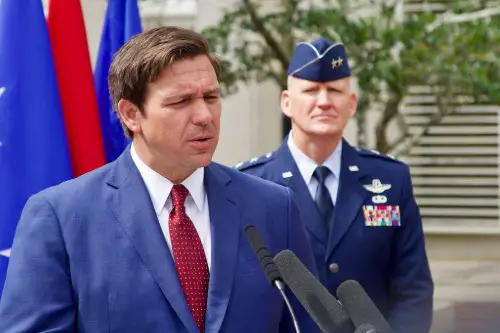
Florida Governor Ron DeSantis has used media appearances and social media in a way that’s very podcast-like: direct, often unscripted, and aimed at rallying a specific audience. His straightforward, sometimes combative style mimics podcast hosts who know their niche and speak plainly to their core listeners. He’s mastered the art of sound bites that feel conversational but packed with political messaging. This approach makes him seem more like a media personality than a traditional politician.
DeSantis also hosts live Q&A sessions that resemble podcast interviews where he explains policies in a casual tone. His interaction with supporters often feels more like a host guiding a community discussion than a governor delivering formal speeches. This media-savvy style is a big part of his appeal. It’s a new way for politicians to engage directly without filters.
7. Ted Cruz

Senator Ted Cruz is well-known for his sharp debate style, but lately, he’s been adopting a more informal, engaging tone in his podcast appearances and social media videos. He speaks to his audience like a podcast host would—breaking down issues, sharing personal views, and occasionally riffing on current events. This style makes his messaging feel more like a one-on-one conversation. It’s a clear pivot from dry political speeches.
Cruz also launched his own podcast, Verdict with Ted Cruz, where he interviews experts and discusses conservative viewpoints. The show’s format mirrors popular political podcasts that blend opinion and interview segments. It’s an effective way to shape his public image beyond Senate floor speeches. He’s blending politics with media savvy in a podcast-friendly format.
8. Elizabeth Warren
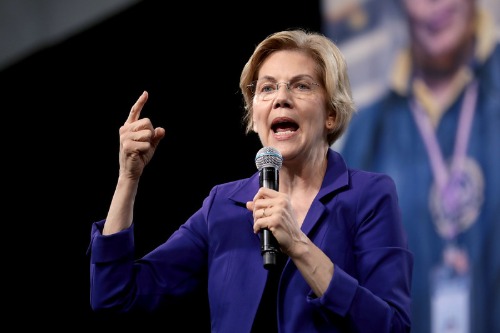
Elizabeth Warren’s approach has always combined data and passion, but now she’s leaning into storytelling that feels podcast-ready. Her speeches and interviews break down complex economic issues into relatable narratives, much like a host guiding listeners through dense topics. This style makes her ideas more accessible and engaging. It’s part of why she connects well with progressive audiences who crave depth mixed with personality.
Warren has appeared on numerous podcasts where she discusses policy in a relaxed, conversational way. These appearances allow her to step out of the traditional political spotlight and connect more personally with listeners. It’s a shift toward more intimate political communication. Her voice feels like a guide through policy, not just a politician reciting talking points.
9. Andrew Yang
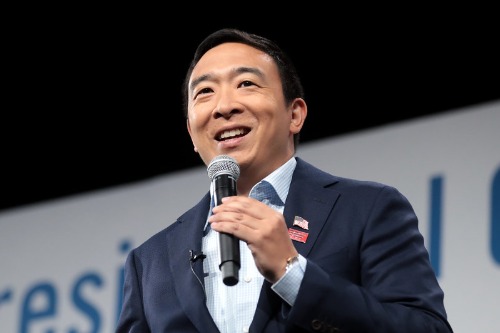
Andrew Yang is probably one of the clearest examples of a politician who sounds like a podcast host. Before running for president, he was a tech entrepreneur comfortable with media, and he naturally gravitated to podcast formats. His straightforward, calm, and explanatory style feels like he’s hosting a show designed to educate and inform. Yang’s ability to break down big ideas like universal basic income into digestible segments is textbook podcasting.
He also launched his own podcast, Yang Speaks, where he chats about technology, economics, and politics in an approachable way. His style is more conversational than combative, emphasizing curiosity over partisanship. This helps him stand out as a thoughtful, media-savvy political figure. Yang’s media presence blends policy with personality seamlessly.
10. Nikki Haley
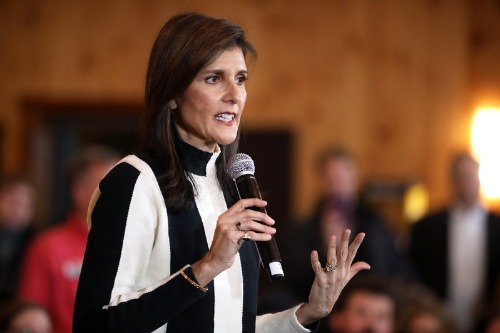
Former South Carolina Governor Nikki Haley’s post-political media ventures highlight her podcast host qualities. She’s developed a style that’s conversational, candid, and sometimes reflective—qualities essential to hosting engaging podcasts. Haley’s interviews and appearances show a willingness to share personal stories alongside political opinions. This blend makes her feel more accessible and less like a distant political figure.
Her podcast With Nikki Haley showcases her ability to lead discussions on leadership, policy, and personal experiences. The format encourages open dialogue and invites listeners into her world beyond politics. This approach humanizes her and expands her audience. It’s clear she’s embraced the podcast format as a natural extension of her public role.
11. Andrew Cuomo
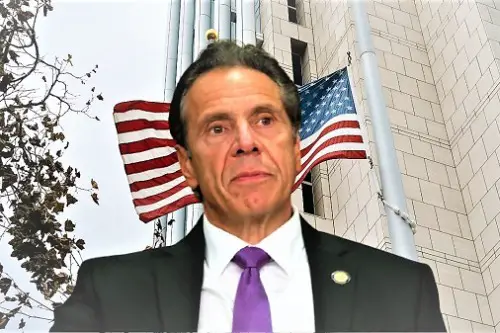
Andrew Cuomo’s post-governorship media appearances and podcasting ventures reveal a conversational style that contrasts with his former more formal public image. His podcast, The Cuomo Podcast, features deep dives into political topics with a relaxed, interviewer-host tone. He speaks as if chatting with close friends, blending personal reflections with political insights. This informal vibe is a stark departure from his previous press conference demeanor.
This pivot to podcasting shows how former politicians are reinventing themselves as media personalities. Cuomo’s willingness to share behind-the-scenes stories adds authenticity. His tone now feels more approachable, like a guide explaining complex issues in everyday language. It’s a clear shift toward the podcast host role.
12. Stacey Abrams
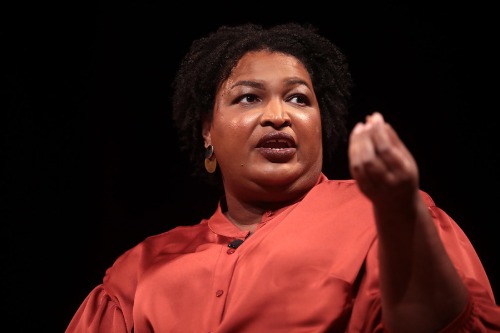
Stacey Abrams has become known for her motivational and storytelling skills, both key traits of successful podcast hosts. Her speeches and media appearances emphasize personal narratives that inspire and educate simultaneously. Abrams’ ability to mix emotional appeal with policy details makes her style feel intimate and engaging. It’s a departure from more traditional, impersonal political rhetoric.
She’s also embraced podcasting as a platform, hosting conversations that explore voting rights and social justice with warmth and depth. These talks are designed to connect on a human level, much like a host building a community. Her voice feels inclusive and empowering. This approach helps build trust and rapport beyond political campaigns.
13. Mike Pence
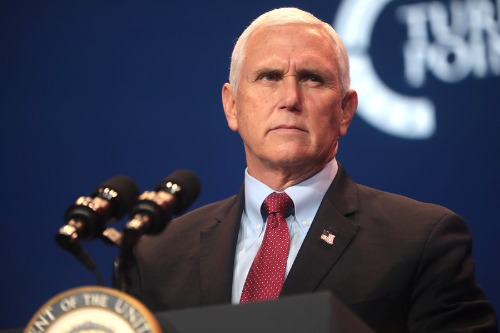
Mike Pence’s communication style has evolved post-vice presidency toward a calmer, more measured tone often found in podcast hosting. His recent interviews and appearances show him focusing on reflective storytelling and thoughtful analysis rather than speeches. He seems to adopt a tone aimed at explanation and reconciliation. This is a shift from his earlier more rigid public image.
Pence’s guest spots on various podcasts highlight his interest in engaging audiences in conversation rather than debate. His manner is less about confrontation and more about sharing perspective. This softens his public persona and aligns with the conversational ethos of podcast culture. It’s a subtle but notable transformation.
14. Marianne Williamson
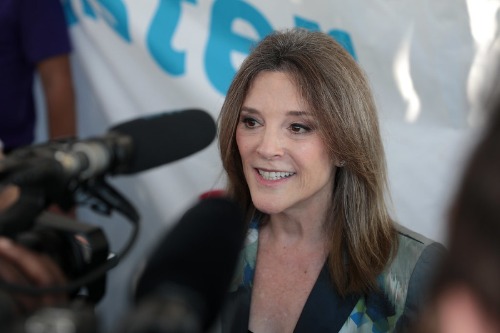
Marianne Williamson’s blend of spirituality and politics naturally lends itself to a podcast host’s style. Her speeches and interviews often feel like guided conversations on healing and transformation. She speaks with a calm, soothing voice that invites listeners to reflect, much like a wellness podcast. This unique approach stands out in the political landscape.
Williamson also hosts podcasts that focus on personal growth and social change, merging her activist roots with intimate media formats. These platforms allow her to explore ideas without the usual political constraints. Her style is less about policy and more about connection and inspiration. It’s a refreshing take on political communication.
15. Rand Paul
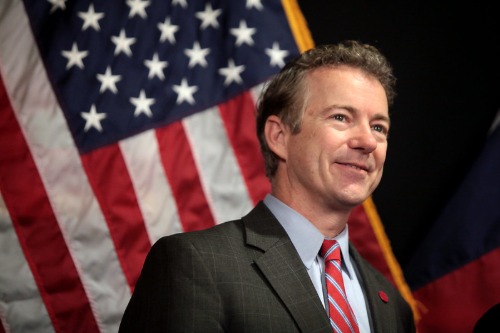
Senator Rand Paul has embraced a relaxed, conversational tone in many of his podcast appearances and interviews. His approach is often casual, mixing libertarian principles with humorous commentary. This style is much like a podcast host who knows his audience well and isn’t afraid to be informal. It helps him stand out in the Senate as a media-savvy communicator.
Paul’s own podcast and frequent guest spots allow him to explain his views without the filter of traditional media. He often uses storytelling and analogies, which are hallmarks of effective podcasting. This makes his political messaging feel more personal and direct. His media strategy clearly leans into the podcast format’s strengths.
This post 15 Political Figures Who Now Sound More Like Podcast Hosts Than Lawmakers was first published on American Charm.


